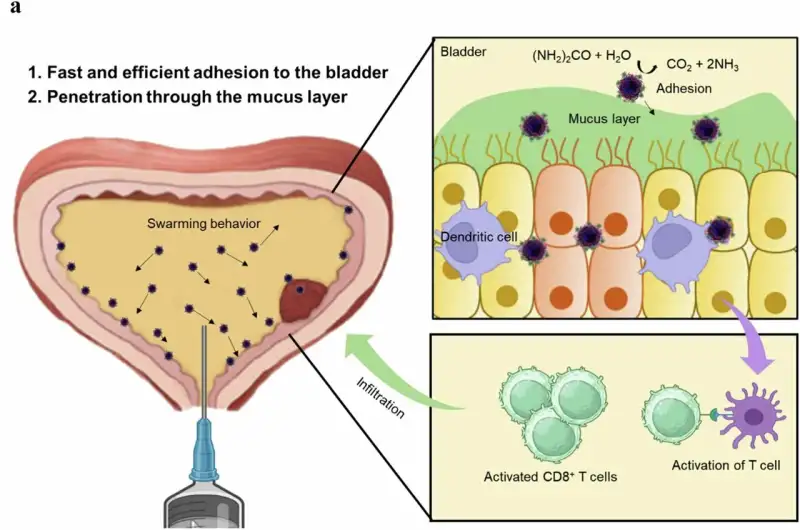Recent advancements in nanotechnology have led to the development of urease-powered nanomotors designed to enhance immunotherapy for bladder cancer. These self-propelled nanoparticles utilize the enzyme urease to react with urea present in urine, enabling targeted movement and efficient distribution within the bladder. This targeted approach allows the nanomotors to deliver therapeutic agents directly to tumor cells, thereby enhancing treatment efficacy.
In preclinical mouse models, these nanomotors were functionalized with a STING agonist—a molecule pivotal in activating the immune system. The results demonstrated a significant reduction in tumor growth, surpassing the efficacy of traditional Bacillus Calmette-Guérin (BCG) immunotherapy, which is commonly used for non-invasive bladder cancer but has limitations such as multiple administrations and severe side effects. Furthermore, combining the nanomotor treatment with a PD-1 inhibitor, which prevents tumor cells from evading immune detection, resulted in a synergistic effect, leading to enhanced anti-tumor responses. Click for More Details







